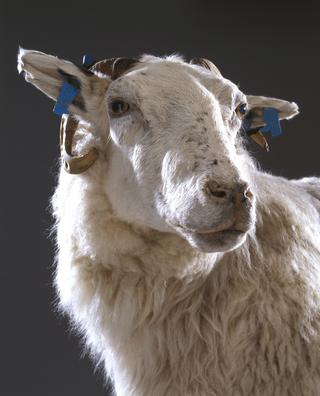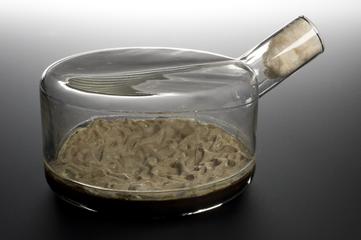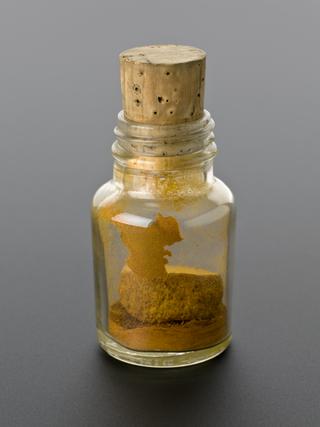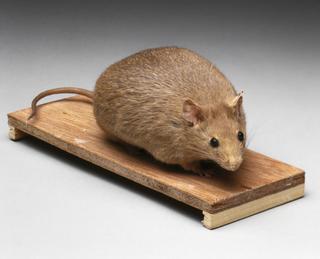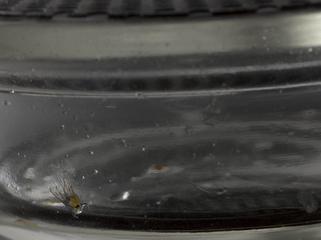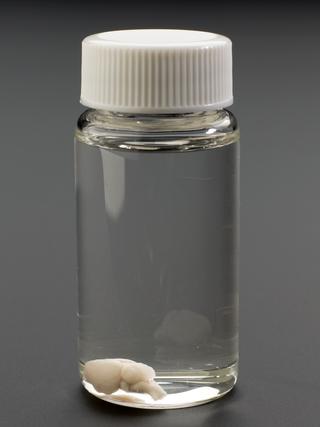
Pruteen sample
- Made:
- 1979-1985 in Billingham



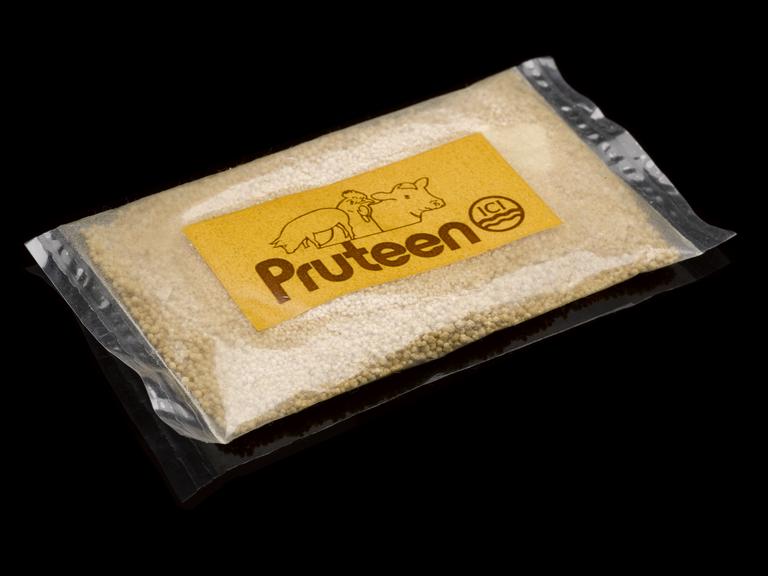

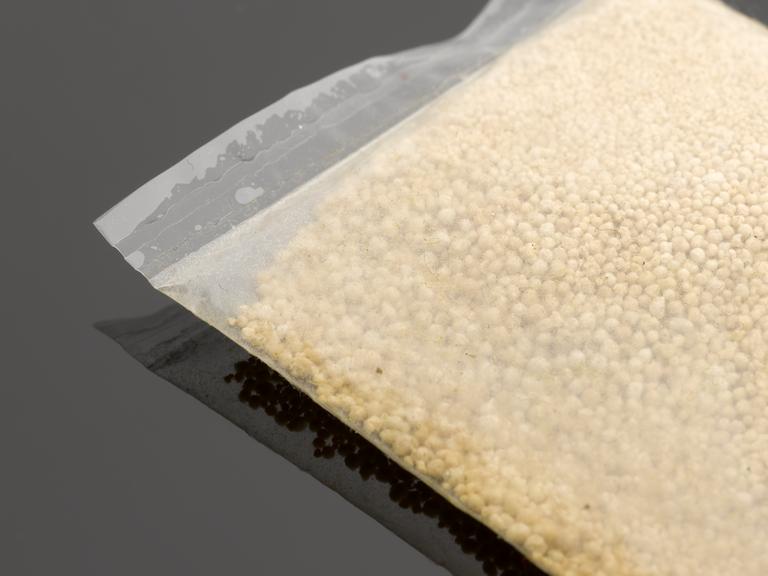
A small sample of the ICI synthetic single cell protein "Pruteen". Developed at the ICI Pruteen plant in Billingham, Stockton-on-Tees. The sample consists of small spherical pellets of brown, processed microbial protein material. The sample is contained within a small, rectangular plastic pouch, with a printed yellow label with the Pruteen brand and company logo.
Pruteen was the first single-cell protein animal feed. It was made from methylophilus methlyotrophus bacteria and methanol in the 1970s. It had a 72% protein content. Single-cell proteins (SCP) refer to edible unicellular microorganisms. There are many benefits of using this type of food source, including a smaller eco footprint and smaller land requirements. However, this form of food production is expensive. Pruteen was discontinued in in the late 1980s, unable to match its competitor’s prices. However, with the world’s population continuing to rise, SCP food sources could be part of the the answer to the impending food shortage that experts have predicted.
Pruteen’s manufacturers, ICI, eventually used their expertise to with Rank Hovis McDougall to develop a food protein made from a fungi called Fusarium venenatum. This is the based for the product Quorn®, which has been sold since 1985.
Details
- Category:
- Biotechnology
- Object Number:
- 2019-383
- Materials:
- plastic (unidentified)
- Measurements:
-
overall: 9 mm x 114 mm x 57 mm,
- type:
- sample and synthetic protein
- credit:
- Imperial Chemical Industries Limited
